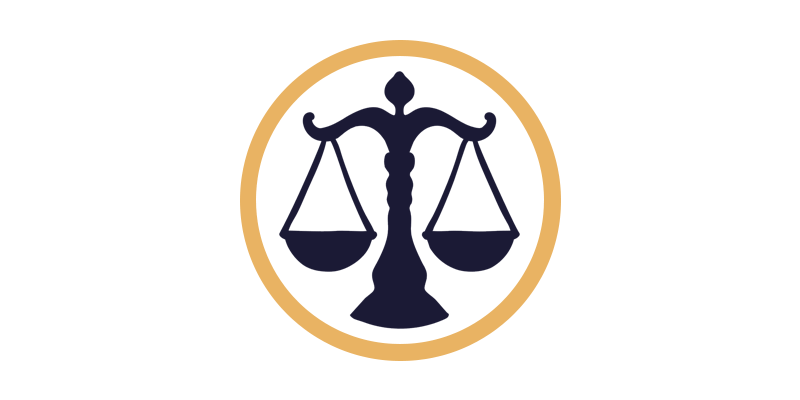An injunction is a court order that protects an individual from violence. Injunctions, also known as restraining orders, provide a fast means of protection for individuals who feel threatened or endangered.
The “Petitioner” is the person seeking protection from the court through an injunction. The “Respondent” is the person who allegedly committed, or threatened to commit, violence against the Petitioner.
Injunctions require Respondents to stay a certain distance from the Petitioner’s residence, vehicle, workplace, school, and other places specified in the order. Additionally, the Respondent may not contact the Petitioner through any mode of communication (e.g., writing, e-mail, phone calls, social media platforms.)
It’s important to note that in Florida, filing a petition for an injunction is a civil process, not a criminal one. In most cases, the Respondent simultaneously has pending criminal charges related to the Petitioner’s injunction request. The most common criminal charges involved with injunctions include domestic violence offenses. However, the criminal charges and the injunction are two different processes handled by separate court proceedings and judges.
Domestic Violence Numbers in Florida
In 2020 alone, 106,515 domestic violence crimes were reported to Florida law enforcement agencies, with 63,217 resulting in arrests. Domestic violence advocates reported 150,799 tailored safety plans and provided nearly 200,00 hours of advocacy and counseling services. In addition, about 72,321 individuals made domestic violence hotline calls seeking emergency services, information, and safety planning assistance.
A substantial number of domestic abuse or violence survivors are not reporting the abuse or accessing help services. The lack of reporting from victims makes it hard to account for the true extent of domestic violence in Florida. However, the numbers show that domestic violence is a community crisis. While domestic violence is not the only reason Petitioners seek injunctions in Florida, it is perhaps the most common.
From 2001-2020, Pinellas County has consistently had a higher rate of Domestic Violence Reports than Florida’s average.
According to County Clerk records, from January 2021 to August 2022, there were 500 domestic injunctions filed in Pinellas County. Of the 500 injunctions:
- 156 were related to stalking
- 278 were related to domestic violence
- 41 were related to repeat violence
- 25 were related to dating violence
Is There a Difference Between an Injunction and a Restraining Order in Florida?
In Florida, Injunctions and restraining orders are interchangeable terms. An injunction is the technical legal term for a restraining order. Therefore, they are essentially the same thing.
Understanding the Types of Injunctions in Florida
There are six types of injunctions in Florida. To determine which kind of injunction to file, The Petitioner must consider:
- Their relationship with the Respondent;
- And what has happened for them to need an injunction
For each type of injunction, there are different requirements to meet. If the Petitioner is under 18, they will need to check with the county Clerk about an adult filing on their behalf.
Florida Domestic Violence Injunction
Florida Statue 741.30 permits household members, family members, or spouses to file a petition for an injunction against domestic violence. A family member or household member includes:
- Spouses
- Ex-spouses
- Anyone related by blood or marriage
- Any parties in an intimate relationship and living together, regardless of marital status
- Any parties currently residing in a single dwelling unit or that have lived together in the past
- Or two people who have children together, regardless of living arrangements
According to Florida Statute 741.28, domestic violence is any of the following:
- Assault
- Aggravated assault
- Battery
- Aggravated battery
- Sexual assault
- Sexual battery
- Stalking
- Aggravated stalking
- Kidnapping
- False imprisonment
- A family member who causes physical injury or death to another family or member of the same household.
Florida Dating Violence Injunctions
Dating violence is violence that occurs in an ongoing intimate or romantic relationship. If the Petitioner wishes to file a dating violence injunction, the relationship must have lasted for at least six months.
Florida Sexual Violence Injunctions
Any victim of sexual violence should report the offense to law enforcement and comply with any relevant criminal proceedings.
Sexual violence includes:
- Sexual battery (chapter 794)
- Lewd and lascivious act upon or in front of a minor under 16
- Lured or enticed a child (chapter 787)
- required a child to perform sexual acts (Chapter 827)
- Or committed any forcible felony involving a committed or attempted sexual act.
Victims can also file a sexual violence injunction If a sexual offender is already in jail for the offense and their release is within 90 days.
Florida Repeat Violence Injunctions
A Petitioner may file a repeat violence injunction if:
- There have been two or more incidents of physical violence, threats, or stalking
- The violence, threats, or stalking occurred in the last six months
- The Respondent inflicted the violence, threats, or stalking upon the Petitioner or their immediate family
Repeat violence injunctions are common in cases involving disputes between neighbors, co-workers, students, relatives, or persons the Petitioner never lived with. For example, in Florida, repeat violence injunctions frequently appear in disputes in Homeowners’ Associations and Condo Associations.
Florida Stalking Injunctions
Victims of stalking have the right to file a petition for an injunction in Florida. In Florida Statute 784.0485, stalking is “willfully, maliciously, and repeatedly following, harassing, or cyberstalking another person.”
Cyberstalking is any direct and persistent communication with a victim through an electronic mode. The stalker usually lacks a legitimate purpose for contact and inflicts severe emotional anguish on the victim.
These days, stalking injunctions are becoming more and more common because Petitioners have proof of stalking on their electronic devices.
Injunction for Exploitation of a Vulnerable or Elderly Adult
An injunction for the exploitation of a vulnerable or elderly adult is an emergency court order. This injunction serves to keep the potential exploiter away from a vulnerable adult.
Fla. Stat. § 415.102(28) defines a vulnerable adult as:
- A person 18 years of age or older who is unable to perform everyday activities of daily living or provide for their care
- An impaired adult due to any of the following:
- mental, emotional, sensory, long-term physical, or developmental disability or dysfunction
- brain damage
- or the infirmities of aging
Under Florida Statutes Section 825.103(1), exploitation of a vulnerable adult means:
- Any form of abuse in a confidential relationship
- Abusing a business relationship
- Knowingly taking or conspiring to take property from a vulnerable person who lacks the capacity to consent.
- Breaching a fiduciary duty that results in
- Appropriation or transfer of property without a justifiable exchange
- Committing fraud to obtain a power of attorney
- Committing fraud to obtain an appointment as a trustee
- Any other fiduciary abuse of power
- Knowingly taking funds from a joint account only intended for the vulnerable adult’s benefit.
- Negligence of a caregiver in handling the vulnerable adult’s funds
- Intentional failure to use the vulnerable person’s assets to provide appropriate care
Who Can File a Petition on Behalf of a Vulnerable Adult?
If there is sufficient cause for an injunction, these people can file a petition:
- The vulnerable adult
- The guardian of a vulnerable adult
- Any person or entity with consent to act on behalf of the vulnerable adult or their guardian.
- Someone who is also filing a petition to determine the incapacity of the vulnerable adult (they may be seeking temporary guardianship)
The Petitioner must file for an injunction to protect a vulnerable adult in the guardianship proceeding if applicable. In addition, the Petitioner has a legal obligation to report the exploitation to the central abuse hotline.
The court may choose any of the following forms of relief from exploitation, temporarily or permanently:
- Prohibit the Respondent from contacting the vulnerable adult
- Restrain further exploitation
- Give exclusive use and ownership of the shared dwelling solely to the vulnerable adult (in this case, the court must confirm the vulnerable adult has alternative care)
- Freeze assets of the vulnerable adult
- Freeze the Respondent’s assets if proven the Respondent obtained them through the exploitation of the vulnerable adult.
- Provide directives to law enforcement agencies for the Respondent
- Order payment of living expenses for the vulnerable adult (if assets are temporarily frozen)
- Order the Respondent to receive treatment or counseling at the Respondent’s expense
- With a permanent injunction, a judge can temporarily freeze the Respondent’s assets and return them to the vulnerable adult or remain pending until the resolution of ownership.
- The judge may rule a financial penalty against the Respondent.
The Injunction Process in Florida
First, the Petitioner will file a petition for an injunction at the Clerk’s office. This is a simple, straightforward process. Petitioners can file with or without legal assistance. However, most Petitioners file pro se or on one’s own behalf.
The Petitioner is responsible for explaining all incidents of violence in detail. Everything should be neatly printed or typed, so it’s easily legible for a judge. Additionally, they may include pictures, text messages, or other supporting evidence to the allegations.
The Petitioner should give an account of all dates and locations of violent offenses from the Respondent. Anything a Petitioner fails to include in the petition will not be admissible in court.
If the Petitioner and Respondent have any other ongoing legal proceedings, they should include that information in the petition.
Upon completion, a judge will review the petition. Usually, whichever judge is on duty that day will review all petitions on the same day the Petitioner files.
The Sheriff’s Department is responsible for serving the Respondent a copy of the petition and all relevant court papers.
What Happens After Someone Files a Petition for Injunction in Florida?
There are two possible outcomes after someone a Petitioner files for Injunction in Florida:
- The judge grants a temporary Injunction for Protection which is only in effect until the hearing. The Respondent may not contact the Petitioner before court.
- The judge may deny the petition. Law enforcement would serve the Respondent all papers if the Petitioner requested a final hearing. The case is over if the Petitioner does not request a final hearing. Lastly, the Petitioner has the opportunity to file a supplemental petition to add any other compelling evidence to help win the injunction.
How Long Does a Temporary Injunction Last in Florida
Temporary injunctions in Florida last for no longer than fifteen days. However, if the Respondent is in jail, the temporary injunction will be effective for fifteen days following the date they are released from prison. The court may use its discretion to grant a continuance of the injunction. Do not be surprised if the court date is set after the fifteen days because it is solely up to the judge when to set the hearing.
How Long Can a Final Injunction Last in Florida?
Florida does not have a specified time limit for a final injunction. Therefore, the injunction’s terms remain intact until changed or dissolved later. But, the standard for most injunctions is from 6 months to 2 years. Both the Petitioner and the Respondent may legally pursue a modification or extension of the injunction.
A judge may grant this relief in addition to other criminal or civil remedies.
Penalties For Violating an Injunction in Florida
There are consequences for violating any injunction in Florida. For example, violating a domestic violence injunction, dating violence injunction, sexual violence, repeat violence injunction, stalking injunction, or exploitation of a vulnerable adult injunction, is a first-degree misdemeanor. In addition to the criminal charges, penalties include up to 1 year in jail or probation and a $1,000 fine.
In severe cases, the offender may face more severe changes, like felony offenses. For example, if a person violates multiple injunctions with intent to harass or threaten, they could be found guilty of aggravated stalking.
What Restrictions Will the Offender Face With an Injunction Against Them in Florida?
An injunction against the Respondent can affect their lives in different ways, including:
- Limited or no ability to purchase or possess weapons and ammunition
- The injunction against the Respondent is enforceable in all states.
- The final injunction might require the Respondent to move out of the shared dwelling unit.
- The injunction may pose restrictions or limits on the Respondent’s time spent with minor children and require child support payment.
- The injunction may require the Respondent to complete a Certified Batterers’ Intervention Program.
- The injunction may affect employment opportunities and their application process. This will be especially true for a Respondent seeking a job that requires weapons use.
- Their professional licenses may be affected.
- They may not be permitted to join the military, schools, colleges, or universities.
Should I Hire a Lawyer To Help Me File an Injunction in Florida?
It’s always best to have a Florida Injunction Lawyer to help with your case. Petitioners often file an injunction pro se, only to find that the process is more complex than anticipated. They may have an even more significant challenge if the Respondent hires a Florida Injunction Lawyer.
A Florida Injunction Lawyer is not only a professional who can help protect your rights but also a support system that will help you feel more confident going into court.
Whatever the circumstances of your case, a Petitioner, and Respondent, have the right to hire legal representation. We handle both sides of the injunction.
What if Someone Files an Injunction Against Me in Florida?
You will first get served with official court papers. A law enforcement officer from your local Sheriff’s Department will generally serve papers.
The most critical step after an officer serves you with an injunction is to call a Florida Injunction Lawyer. Injunctions in Florida are public records. So, if you are looking for a job, applying for school, or wish to do anything else requiring a background check, this may hurt you.
Court hearing dates are generally set very soon after you get served. Therefore, you must give your Florida Defense Attorney enough time to strategize a defense to employ on your behalf.
You Must Obey a Temporary Restraining Order
A preliminary injunction, or temporary restraining order, will be effective until the hearing. Once a law enforcement officer serves you with a protective order, you are legally obligated to comply.
If the Petitioner was communicating with you while you got served, or attempted to communicate with you, do not engage.
If you violate the injunction, you can face severe penalties. Police may arrest and charge you with a criminal offense. Once in jail, getting out on bond for an injunction violation is very difficult.
Things to Avoid While Someone Has an Injunction Against You
What you don’t do can be just as significant as what you do after the Petitioner files an injunction against you. You don’t want to do anything that could hurt your chances in court.
Your best bet is to keep a low profile until everything gets resolved after the hearing. Also, do not provoke the Petitioner or contact them in any way. Keep your cool and your distance. Having your mom or friends reach out to instigate is immature and could also hurt your case later.
Do Not Contact The Person Filing An Injunction Against You
Do not contact the other person at all once the injunction is filed. While you may want to work things out or ask them questions, if the injunction was a surprise, that’s not allowed. You will go to jail if you get caught contacting them.
If they call you, answer only to redirect them to your Florida Injunction Lawyer. Under the court order, the Petitioner can still contact you. It only prevents the Respondent from contacting the Petitioner. Therefore, if they call you, you may answer, but keep it brief and defer them to your lawyer.
If they contact you via text message, do not respond. Answering a text message that the Petitioner initiated is still communicating with them and is prohibited under the protective order.
Do Not Share Any Details About Your Injunction Case on Social Media
Refrain from sharing anything about the case on social media. This may seem like common sense, but many past Respondents have jeopardized themselves by oversharing on Facebook.
It’s normal to feel angry and feel that the injunction is unjustified or it may be outright untrue. However, do not make any public statements or comments about the case. There is no good outcome from doing so.
Public sharing is not only limited to social media. You should also avoid discussing details publicly with mutual friends or community members. If it gets back to the Petitioner, they could use this against you in court. The friends you’ve shared an emotionally-uninhibited version of the story with may end up being called to the stand as a witness. It will reflect poorly on you if you were bad-mouthing the Petitioner while they have a restraining order against you.
The bottom line is to keep your head down and stay as discreet as possible about your case until after the court hearing.
Why Do I Need a Florida Injunction Lawyer?
Most laypeople don’t have legal training or understand how legal proceedings work. Here are some key strengths that your Florida Injunction Lawyer can bring to the table:
- They have legal training and understand the laws related to injunctions and restraining orders.
- They have experience in trials and handling cases involving injunctions.
- They can introduce evidence in a professional, compelling manner.
- They can ask questions in a way that is legally permissible in court.
- They know the standard of proof.
- If the judge rules on the final injunction, they can negotiate the terms.
Having an injunction against you can be a confusing and emotional time for all parties involved. You may feel embarrassed or ashamed that someone has brought an injunction against you. However, A Florida Injunction lawyer can guide you through the process and potentially help you save face.
Can I Challenge a Protective Order Issued Against Me?
Yes. In Florida, the Respondent has a legal right to a hearing. In the hearing, you can present your side of the story. You can also question the Petitioner, present your evidence, and call your witnesses to the stand.
What Evidence Do I Need To Provide to My Florida Injunction Lawyer?
If you have any proof that can discredit the allegations made against you, collect it. Collecting all evidence can help your case and give it to your Florida Injunction lawyer. It will also help if other people corroborate that the Petitioner is making false claims.
If the Petitioner has a history of making false claims or ulterior motives, inform your Florida Injunction Lawyer. Many times people file a restraining order out of petty retaliation. And unfortunately, we often see jealous persons with a vengeance filing injunctions without a valid basis. That’s why collecting your own evidence is essential to counter any accusations against you.
Sometimes Injunctions Are Wrongfully Used as Revenge
Our Florida Injunction Lawyer defends clients with all types of injunctions. Sometimes a spiteful Petitioner will request an injunction to get an unfair advantage in a civil matter.
For example, let’s say a couple is in the middle of a divorce proceeding, and one person claims the former spouse committed domestic violence against them. Of course, that could be a blatant lie to gain an advantage in the custody proceeding. But, while it seems bizarre, it has and does happen often.
Is It Possible To Agree to an Injunction Without a Hearing?
Yes. Often, especially with pending criminal cases, the injunction may be a low-priority concern. If you are more concerned with resolving the other criminal charges, you could negotiate a certain length of injunction and bypass a court hearing.
Sometimes, the Respondent willingly decides they want to cut all contact with the Petitioner. In this instance, both parties could work out a stipulation as well.
Contact a Florida Injunction Lawyer Today
If you are involved in an injunction case, it’s always wise to have a lawyer on your side. Whether you are the Petitioner or Respondent, there will be a battle to fight.
As the Petitioner, you don’t want to get strong-armed by a defense lawyer who may be well-versed in the rules and well-acquainted with the judge.
If you are the Respondent, do you want the stigma of an injunction tainting your reputation? If someone already has an injunction against you, don’t risk getting arrested for violating an injunction.
We represent both Petitioners and Respondents for injunctions. We specialize in Pinellas County, Florida. Contact us today for a free, no-obligation consultation.








